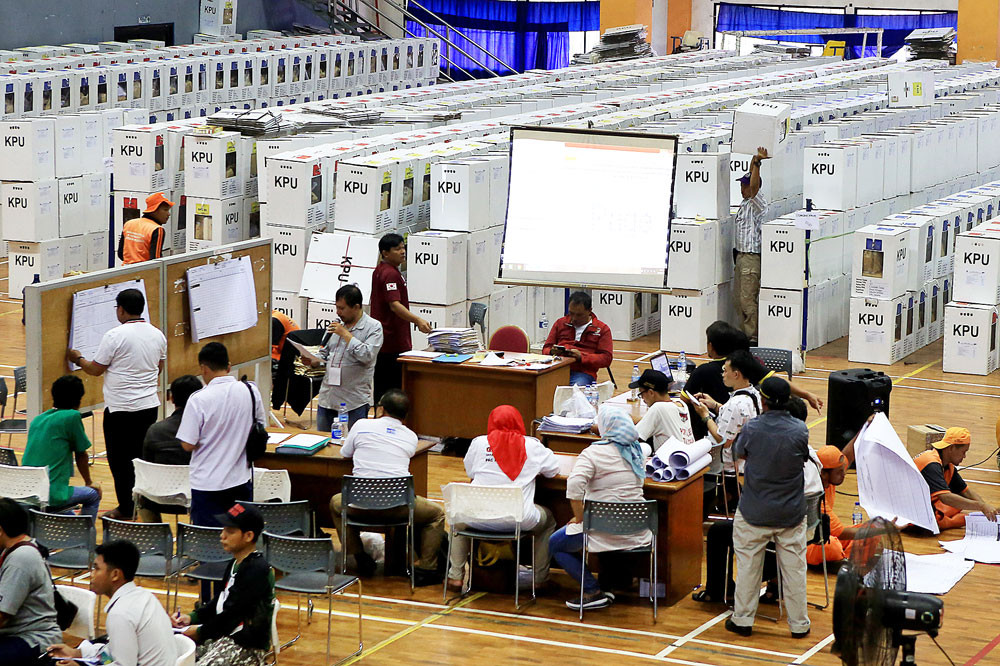Popular Reads
Top Results
Can't find what you're looking for?
View all search resultsPopular Reads
Top Results
Can't find what you're looking for?
View all search resultsElectoral solutions
The death toll of poll workers caused by ill-health or exhaustion has exceeded 90 people, according to the General Elections Commission (KPU). However, this is not the only reason that we need to shift to an electronic system to replace the manual voting that has been in place since Indonesia held its first general election in 1955.
Change text size
Gift Premium Articles
to Anyone
T
he death toll of poll workers caused by ill-health or exhaustion has exceeded 90 people, according to the General Elections Commission (KPU). However, this is not the only reason that we need to shift to an electronic system to replace the manual voting that has been in place since Indonesia held its first general election in 1955. More importantly, e-voting can boost the credibility of the elections, minimize vote rigging and save money, time and energy.
Technicalities in running the simultaneous presidential and legislative elections last week stretched poll workers, who were residents recruited by the KPU on a voluntary basis, to their limit. Starting work at 6 in the morning on April 17, many of them did not finish their administrative jobs and leave for home until the wee hours of the morning on the next day. The KPU revealed that, as of Monday, 91 poll workers had died and 374 had fallen sick while conducting their state duties or after completing them.
Democracy indeed demands sacrifice, but the loss of so many lives should kick-start a debate on how to improve our election system. Meanwhile, controversies arising from elections mostly center on how credible the results are. In many cases candidates are quick to question the integrity of the poll organizers and later attribute their defeat to the election committee’s partiality toward their rivals.
The KPU is aware of the problems and has proposed the separation of the national from the regional elections as a solution. E-voting, however, has been dismissed because of a lack of the necessary technological infrastructure, particularly in remote areas where internet connections are absent or unstable. Data security is another major challenge.
KPU member Hasyim Asyari said on Tuesday that in the future simultaneous elections could be held to choose the president and members of the House of Representatives (DPR) and Regional Representatives Council (DPD) at a different time than the simultaneous elections to select regional heads and members of local legislative councils (DPRD).
Hasyim said the division would benefit the poll organizers, electoral candidates, political parties and voters. For the KPU the separation would reduce its workload and therefore prevent the deaths of volunteers and improve the quality of elections.
We think the KPU should be open to all possible options, including electronic voting, which has been proven to win public confidence and increase turnout. In the past two years e-voting has been tested in a series of village head elections in, among other provinces, West Java and East Java.
The tiny state of Estonia can now teach other countries a lesson on how to hold a successful election, thanks to e-voting. Our closer neighbor South Korea, meanwhile, is moving a step closer to adopting a blockchain-based online voting system in a bid to boost the transparency and security of elections, following concerns about hacking and fraud.
Technology is advancing so fast that sooner or later Indonesia would have no other choice but to resort to e-voting to make sure every vote counts.










